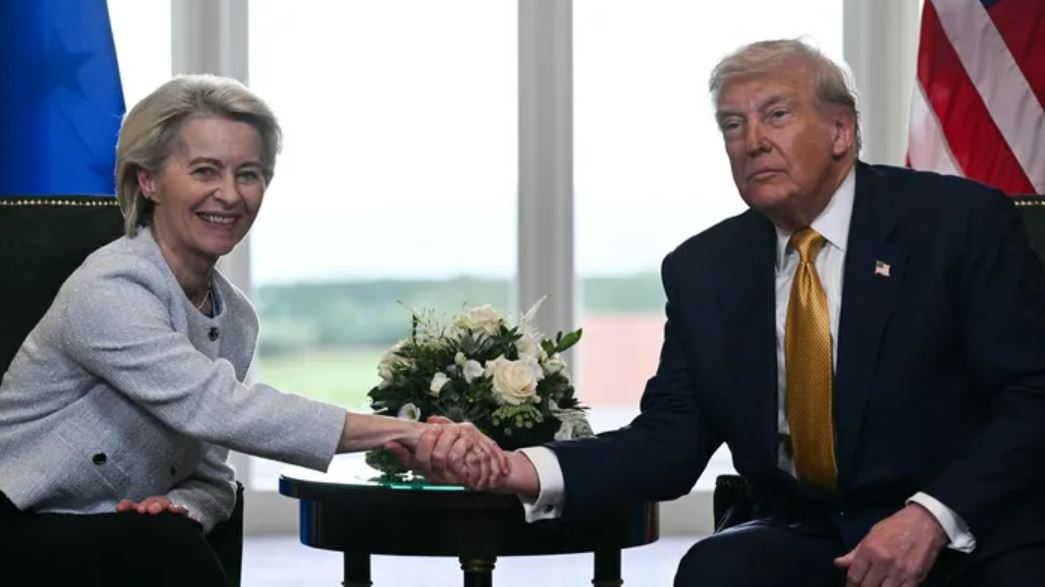The United States and the European Union have concluded a high-stakes trade agreement that averts a full-blown trade war and imposes a 15% tariff on EU goods entering the US — half of what President Donald Trump had threatened just weeks earlier. The deal was finalized after a private meeting between President Trump and European Commission President Ursula von der Leyen at Trump’s Turnberry resort in Scotland.
This agreement ends months of escalating tensions between the two economic powerhouses, whose combined trade accounts for nearly one-third of global commerce. While the 15% baseline tariff remains high compared to previous norms — US tariffs on EU goods averaged just 1.2% in 2024 — it marks a significant de-escalation from the 30% rate Trump had planned to impose on August 1.
Von der Leyen called the deal a “huge breakthrough” that will “bring stability and predictability” for transatlantic businesses, even as she acknowledged the burden the tariff poses. Both leaders hailed the agreement as mutually beneficial, though reactions across the EU have been mixed.
Under the framework, the EU will invest $600 billion in the US and commit to purchasing $750 billion worth of American energy over the next three years — a move von der Leyen said will help the bloc reduce its reliance on Russian energy sources. In exchange, certain goods will be exempt from tariffs altogether, including aircraft and components, semiconductors, select chemicals, and some agricultural products.
However, key sectors such as spirits and automobiles remain under negotiation. French and Dutch officials have expressed concern over the lack of clarity on wine and beer tariffs, while German automakers welcomed the reduction from a 27.5% levy to 15%. German Chancellor Friedrich Merz said the deal “spared Germany’s auto industry from a devastating blow.”
Read More: Trump wants new nuclear talks with Russia
Despite the concessions, criticism persists across EU capitals. France’s European Affairs Minister Benjamin Haddad described the deal as “unbalanced,” noting that it disproportionately benefits US interests while placing long-term strain on EU economies. Bernd Lange, chair of the European Parliament’s trade committee, warned the arrangement risks shifting EU capital to the US at the expense of European industry.
From the American side, the deal is being championed as a major Trump victory. It mirrors the 15% tariff structure agreed with Japan and other countries, while securing hundreds of billions in new investments. Trump declared it “the biggest deal ever made,” reinforcing his administration’s strategy of leveraging tariffs to rebalance trade deficits — particularly the $235 billion goods trade gap with the EU in 2024.
The deal, while averting immediate crisis, remains a preliminary framework. Both sides face further technical negotiations in the coming weeks, and Trump retains the authority to hike tariffs if the EU fails to fulfill its investment pledges.
With lingering disputes over steel, pharmaceuticals, and agricultural quotas, the road to a comprehensive trade treaty remains uncertain — but for now, a damaging rupture in transatlantic trade relations has been avoided.














